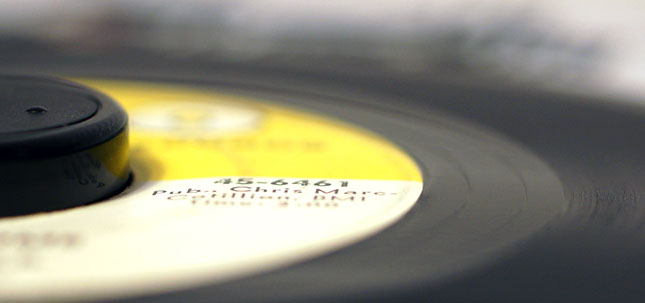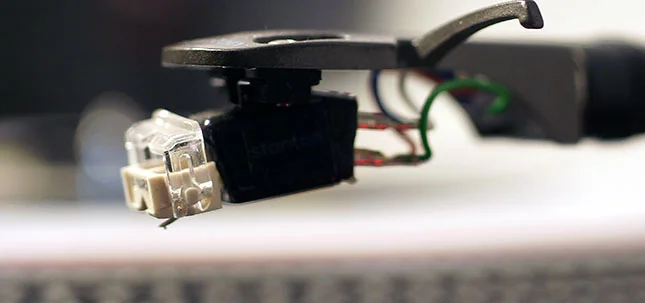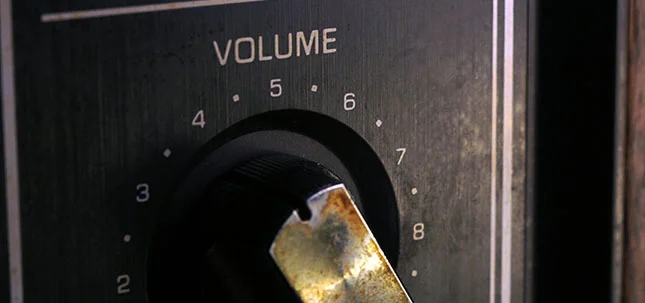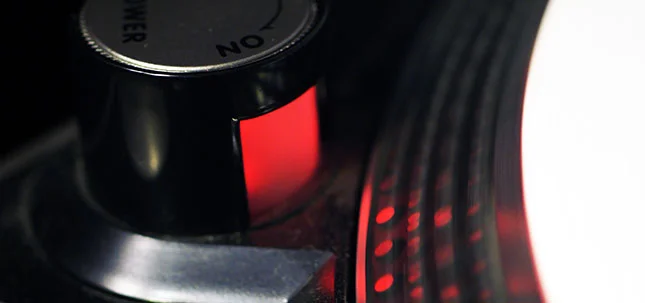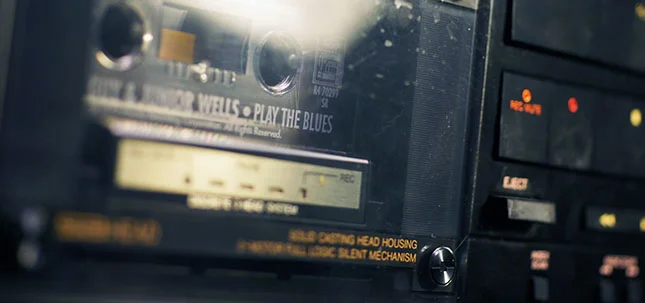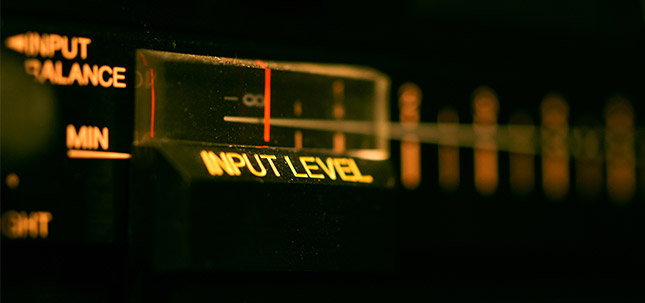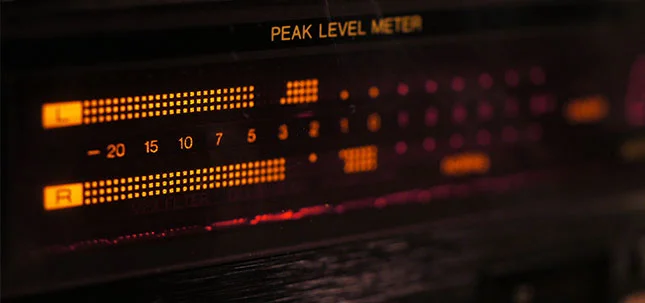The Filthy Fifteen: Part 2
This week, we’ll be covering the Parents Music Resource Center’s Filthy Fifteen: a list of songs from 1985 that, according to the group, embody the music industry’s flagrant promotion of sex, violence, drugs, and the occult. This is the third installment of a four-part series. For more background, check out our introductory article and the first part of our countdown.
AC/DC - "Let Me Put My Love Into You"
The Parents Music Resource Center attacks AC/DC in a few different ways throughout the 1985 Senate hearing. Most notably, Pastor Jeff Ling begins his statement by telling the stories of two high school students who committed suicide while listening to AC/DC’s music.
Steve Boucher shot himself while listening to “Shoot to Thrill” in his bedroom. Dennis Bartts walked to his high school football field in Center Point, Texas, placed AC/DC’s Highway To Hell in his cassette deck, and hung himself from the goal post.
These were two profoundly troubled teens-- and their stories could and would be repeated and rehashed hundreds of times to prove points against violent movies, violent video games, and violent music. Much like what the PMRC aimed to do with Judas Priest’s “Eat Me Alive” while arguing points about sexual assault, AC/DC gets pinned with the deaths of two teenagers.
It all reads exactly the same: rather than talk about rape culture, blame Judas Priest; rather than talk about suicide and depression, blame the good-natured Australians in AC/DC; rather than focus on fixing juvenile delinquency in 1954, have a Senate hearing where you blame comic books. Every generation is scared of the next-- and especially scared of what the new generation likes.
Plus, this is not even close to the best AC/DC song to pick if you’re looking to humiliate the band or paint them as low-life heathens. They have a song called “Big Balls” where they make horrible puns about their testicles in the scope of Cinderella-style high-class parties. They have a song called “The Jack” about a woman with venereal diseases. “Let Me Put My Love Into You” is practically a love letter.
And really, AC/DC’s lyrics have always been pulled straight from a middle-schooler’s notebook. They serve their purpose well, yes, but Brian Johnson is no poet laureate-- and he would probably admit the same. The innuendo in “Let Me Put My Love Into You” is so lame (“Let me cut your cake with my knife?” Are you serious, guys?) that it sounds like a Spinal Tap song.
Twisted Sister - "We're Not Gonna Take It"
Finally, we’ve come to the portion of The Filthy Fifteen where a musician gets to argue back. Dee Snider was the only artist included on the PMRC’s list that showed up to the Senate hearing. His group, Twisted Sister, has long since become a relic of a bygone era: relatively harmless glam rockers who happened to wear a little makeup. That sentence could describe hundreds of bands in the mid-80s, but Tipper Gore picked on the wrong cross-dressing frontman.
Leading up to the Senate hearing, Gore and the PMRC bombarded Twisted Sister with derogatory press, staged rallies at their tour stops, and included their analysis of the song “Under The Blade” in almost every article they produced. According to the PMRC, the song glorifies rape, sadomasochism, and bondage. Without actually responding in the press, the only thing that Snider and Twisted Sister could do was soldier on. Eventually, the band got fed up.
Snider was invited to speak at the Senate hearing-- and he jumped at the chance. More than Frank Zappa and John Denver, Snider had something to prove. The PMRC had jeopardized his personal livelihood, his band’s tour, and his right to free speech.
In an interview conducted years later, Snider recounts his time at the Senate hearings. Writing about some of the things Snider says just doesn’t capture the full scope-- like when he insinuates that the only person looking for bondage and sadomasochism in “Under The Blade” is Tipper herself while Al sits just a few seats over-- so here’s the interview in full. I highly recommend watching this one.
In reality, Twisted Sister was pretty benign. If the PMRC hadn’t picked on them, they would have continued to make music videos with cartoon-style violence where young people don’t want to listen to an authority figure. Who knew there was a market for that? Later on, Frank Zappa would give a wink to Twisted Sister by name-dropping them during his infamous stage shows.
Possibly my favorite moment in Snider’s testimony, though, is when he pulls out his trump card: an authorized letter from United Way of America asking Twisted Sister for permission to use the opening clip from “We’re Not Gonna Take It” as “a light-hearted introduction to communicating with teenagers.” That’s just about the definition of wholesome.
Madonna - "Dress You Up"
Once again, Karenna Gore totally drops the ball for everyone and lets her mother catch her listening to some interesting music.
Madonna skyrocketed into pop stardom after her 1984 album Like a Virgin produced five hit singles, eventually being crowned with platinum status ten times. In July 1985, she became the first female artist to sell five million records. Madonna, in many ways, is the complete personification of both 80s pop music and the still-changing attitudes toward women and their sexuality.
Like many of the Filthy Fifteen, Madonna’s inclusion is kind of a no-brainer. What isn’t so obvious, though, is the choice of “Dress You Up” over other songs from the record.
Barring any conversation between Tarantino characters, “Dress You Up” can hardly even be considered explicit at all. Gore states that the song is an extended metaphor for sex, but that metaphor is over-extended to the point of fallacy.
In regards to Madonna, Gore states that “popular culture is morally bankrupt, flagrantly licentious and utterly materialistic—and [she] is the worst of all." But Tipper didn’t prove it very well. “Dress You Up” is a fairly by-the-numbers song, and its most provocative image is the "velvet kisses" that Madonna mentions. This isn’t “Sugar Walls”
So Gore is going to claim that Madonna is sexually depraved and materialistic, but doesn’t pick either of the two songs from Like a Virgin about sexual depravity and materialism? Coming in at number eight on The Filthy Fifteen, Tipper Gore is officially off her game.
W.A.S.P. - "Animal (Fuck Like a Beast)"
With all of the nuanced criticism and critiques of what makes art truly obscene, the Parents Music Resource Center’s main goal of placing warning labels on album covers can sometimes get lost in the shuffle.
W.A.S.P. was a standard mid-80s Los Angeles heavy metal band in the same vein as Van Halen or Guns N’ Roses-- and the PMRC felt that parents should be warned about some of the content contained within this record:
Frank Zappa, in his testimony: “Mrs. Gore [was asked] whether there was any other indication on the album as to the contents. And I would say that a buzzsaw blade between a guy's legs on the album cover is a good indication that it is not for little Johnny. “
Def Leppard - "High 'n' Dry (Saturday Night)"
As egregious as bands like Judas Priest, W.A.S.P., and Mötley Crüe could be, the choice of Def Leppard’s “High ‘n’ Dry (Saturday Night)” is simply uninformed.
Def Leppard’s song doesn’t advocate for drinking and driving or violence. In fact, it’s “her train comin’ to [me]” for a "midnight ride" after a long Saturday of indulgence. Def Leppard got a designated driver! It might sound aggressive, but there’s nothing here that George Jones didn’t cover twenty years prior-- and I don’t see him on the list.
In our next installment, we dive into the depths of the occult with Mercyful Fate, Black Sabbath, Mary Jane Girls, Venom, and Cyndi Lauper.




